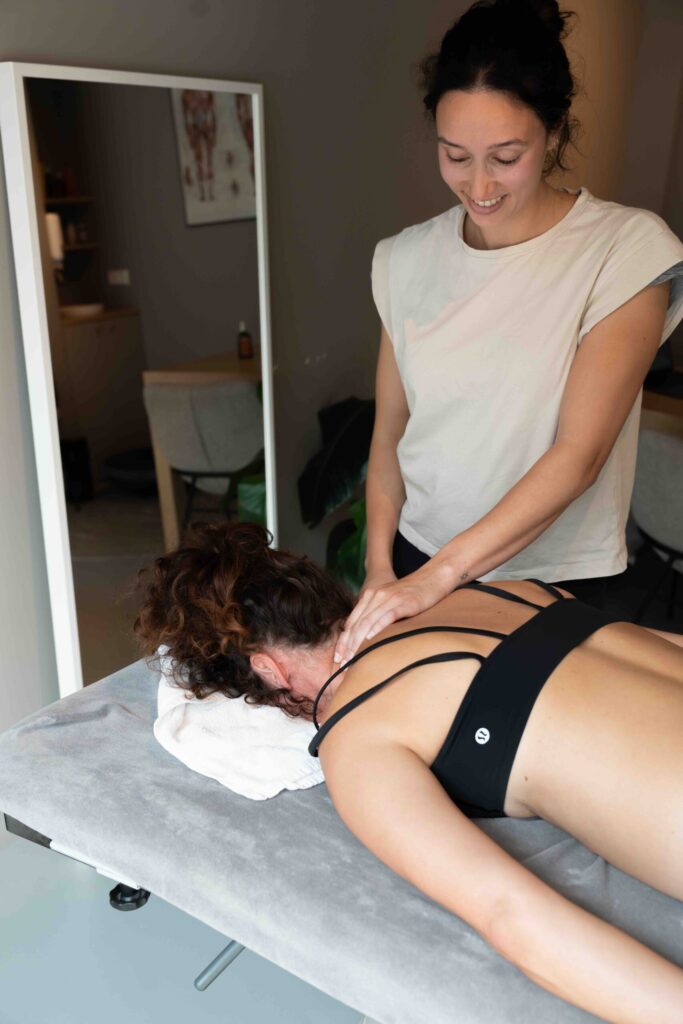
Physiotherapy and migraine
Migraine is a complex neurological condition characterized by intense, throbbing headaches, often on one side of the head. In addition to pain, symptoms such as nausea, vomiting, sensitivity to light and sound, and visual disturbances can occur. Migraine attacks can last from several hours to even days and have a significant impact on the daily functioning of those who suffer from them. At bbb physiotherapy, we can help you reduce your migraine symptoms.
Although the exact causes of migraines are not yet fully understood, it is believed that a combination of genetic, environmental, and neurological factors plays a role. Common triggers include stress, hormonal changes, sleep deprivation, certain foods, and changes in weather. For people with chronic migraines, these attacks can be more frequent and severe, leading to a decreased quality of life.
Physiotherapy and migraine
Physiotherapy can play an important role in reducing the frequency and severity of migraine attacks. While physiotherapy cannot cure migraines, it can alleviate symptoms by addressing physical factors that contribute to headaches. This is especially important when migraines are accompanied by muscle tension in the neck, shoulders, and back, which is often the case.
- Reducing tension in the neck and shoulders: many migraine patients experience stiff and painful muscles in the area around the neck and shoulders. Physiotherapists can apply targeted techniques such as manual therapy, mobilizations, and massages to reduce this muscle tension. This can lead to fewer migraine attacks or less severe symptoms.
- Posture correction: poor posture, especially in people who do a lot of desk work or frequently work on a computer, can contribute to muscle tension and headaches. Physiotherapy can help improve posture through exercises aimed at strengthening the back and neck muscles. Better posture can help prevent migraine attacks in the long term.
- Exercise therapy and relaxation techniques: in addition to addressing physical symptoms, physiotherapy can also teach techniques to reduce overall muscle tension in the body. This may include breathing exercises, relaxation techniques, and gentle stretching exercises. These techniques can help reduce stress, a significant trigger for migraines.
- Dry needling: our physiotherapists can also apply dry needling, a technique that treats knots or ‘trigger points’ in the muscles that may cause headaches or migraines.
Conclusion
bbb physiotherapy offers a non-medicated approach to reducing migraine symptoms. By addressing physical factors such as muscle tension and posture it can significantly improve the quality of life for migraine sufferers. In combination with other treatments, such as medication and lifestyle changes, physiotherapy can be a valuable addition to managing migraines.
Recover and strengthen at bbb physiotherapy. Would you like to know more about the possibilities? Make an appointment here.
